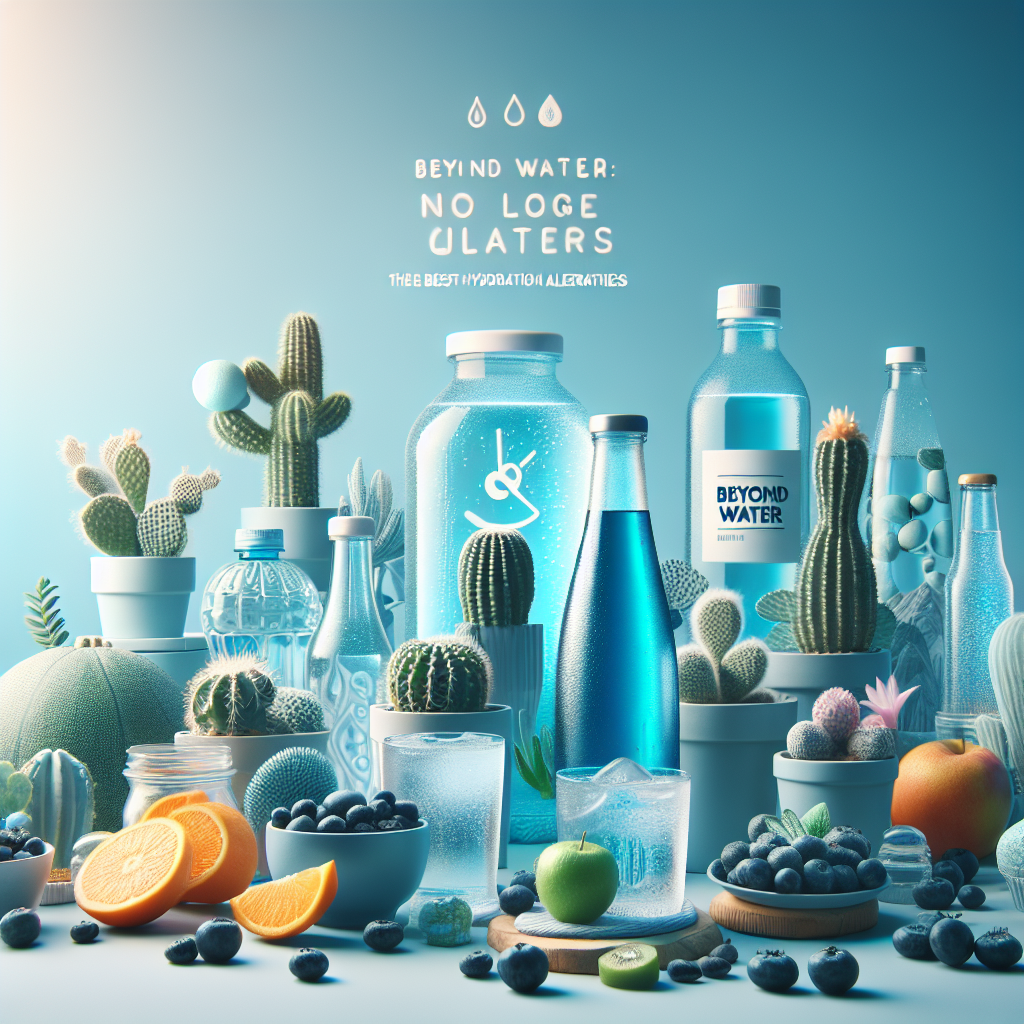Staying hydrated is essential for maintaining optimal health and well-being. While water is the most common choice for quenching thirst, there are numerous other beverages and foods that can effectively contribute to your daily hydration needs. In this comprehensive guide, we will explore various hydration alternatives that offer unique benefits, flavors, and nutritional values.
The Importance of Hydration
Hydration plays a crucial role in many bodily functions, including regulating body temperature, maintaining skin health, and supporting digestion. Adequate fluid intake is vital for energy levels, cognitive function, and overall physical performance. While water is a primary source of hydration, exploring alternatives can add variety and additional nutrients to your diet.
Top Hydration Alternatives
Coconut Water
Coconut water is a natural, refreshing beverage that is rich in electrolytes, making it an excellent choice for rehydration after physical activity. It contains potassium, sodium, and magnesium, which help replenish lost electrolytes and maintain fluid balance in the body.
Herbal Teas
Herbal teas are not only hydrating but also offer various health benefits depending on the herbs used. Chamomile tea, for instance, is known for its calming effects, while peppermint tea can aid digestion. Most herbal teas are caffeine-free, making them a great option for hydration throughout the day.
Infused Water
Infused water is a delicious way to enhance the flavor of plain water using fruits, vegetables, and herbs. Popular combinations include cucumber and mint, lemon and ginger, or strawberry and basil. These natural infusions add a subtle taste without added sugars or calories.
Milk and Plant-Based Milks
Both dairy milk and plant-based milks like almond, soy, and oat milk provide hydration along with essential nutrients. Milk is an excellent source of calcium and vitamin D, while plant-based options often contain additional nutrients like vitamin B12 and iron.
Electrolyte Drinks
Electrolyte drinks are specifically formulated to replenish electrolytes lost through sweat during intense physical activity. These drinks can be beneficial for athletes or individuals engaging in prolonged exercise. However, it is important to choose options with low sugar content to avoid excess calorie intake.
Fruits and Vegetables
Many fruits and vegetables have high water content and can contribute significantly to your daily hydration. Watermelon, cucumber, and oranges are particularly hydrating and also provide vitamins and antioxidants that support overall health.
- Watermelon: Contains over 90% water and is rich in vitamins A and C.
- Cucumber: Composed of about 95% water and provides small amounts of vitamin K.
- Oranges: Offer hydration along with vitamin C and potassium.
Hydration Tips
Incorporating a variety of hydrating foods and beverages into your diet can help ensure you meet your daily fluid needs. Here are some tips to optimize your hydration:
- Start your day with a glass of water: Kickstart your hydration routine by drinking water first thing in the morning.
- Carry a reusable water bottle: Having a water bottle with you encourages regular sipping throughout the day.
- Eat hydrating snacks: Include fruits and vegetables as snacks to boost your hydration and nutrient intake.
- Monitor your urine color: Pale yellow urine is a good indicator of adequate hydration.
- Limit caffeinated and sugary drinks: These can have a diuretic effect and may contribute to dehydration.
Conclusion
While water remains a fundamental component of hydration, exploring alternative beverages and foods can provide additional nutrients and flavors to your diet. From coconut water to herbal teas and hydrating fruits, there are numerous options to keep you refreshed and healthy. By understanding the benefits of these alternatives, you can make informed choices that enhance your overall hydration strategy.



